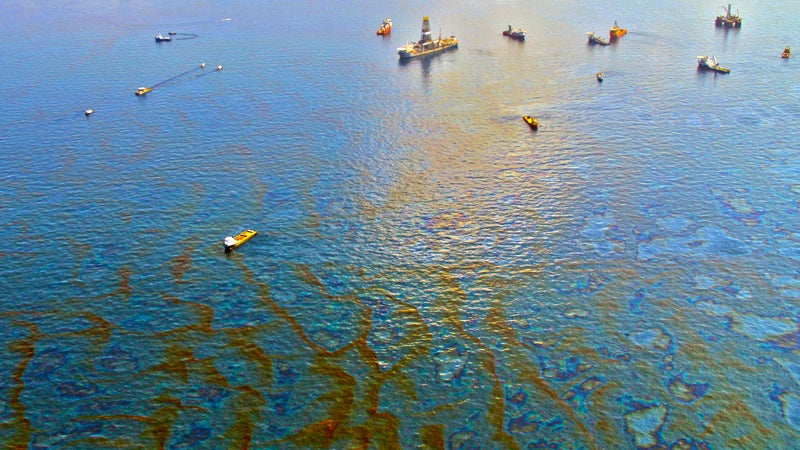A federal judge presiding over the high-profile Deepwater Horizon case declined BP’s request that he reconsider an earlier ruling because he had allowed inadmissible testimony at trial.
In September, U.S. District Judge Carl J. Barbier found British Petroleum guilty of “gross negligence” and “willful misconduct” in the 2010 blowout that killed 11 people and poured more than 200 million gallons of oil into the Gulf of Mexico. The ruling put BP, which has already spent $28 billion on cleanup and damage claims, at fault for 67 percent of the blame and at risk of up to $18 billion in fines under the Clean Water Act.
BP, which had put aside only $3.5 billion for potential fines, announced it would appeal the ruling based on the court’s use of inadmissible testimony from Gene Beck of Halliburton, one of two other companies sharing blame for the disaster. BP asked Barbier to amend the gross negligence ruling or call for a new trial, arguing the Beck’s testimony was critical to finding BP at “gross” fault, . The judge rejected the request Thursday.
“BP’s assertions that it was ‘unfairly surprised’ and ‘prejudiced’ by the court’s reliance on this testimony lacks any basis in fact or law,” Barbier wrote in . “Rather, it seems BP was a ‘victim’ of its own trial strategy.”
Though the testimony was at one point barred from admission for being “outside the scope of [Beck’s] expert report … [and containing] undisclosed opinion,” Barbier explains, BP’s lawyers referred to the testimony later in the trial, inadvertently reintroducing it into play.
BP spokesman Geoff Morrell told reporters that the company still disagrees and will continue pursuing an appeal.
The September ruling pertained only to the blowout of the Deepwater Horizon rig. Barbier will rule on the amount of oil spilled and exact fiscal penalties beginning in January, reports the .


